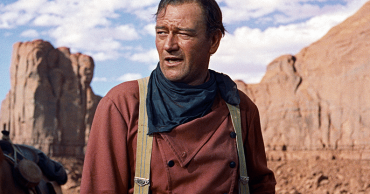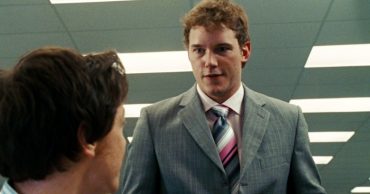
Credit: About Time
We all have those moments or occasions in our lives that we wish we could go back to because they were the happiest ones, or we wish we could change our course to avoid them because they were unpleasant. Would we use that power if we had it, is the question? The objective of About Time is to paint a picture of what this kind of situation would look like. Richard Curtis, a prominent producer, and screenwriter is the movie’s director. Despite the fact that it includes some aspects of fantasy, Richard Curtis is well-known for his work in romantic comedies, and About Time is no exception. It follows the tale of Tim Lake, a young man who discovers from his father that men in their lineage have the capacity to travel across time and, as a result, can go back to past events and memories. He uses his newly acquired abilities to pursue his romantic interests after ascertaining the newfound information. He meets a beautiful woman named Mary and tries to make the most of their time together by going over their embarrassing moments repeatedly in the hopes that she will fall in love with him and eventually marry him.

Credit: About Time
Time is precious, and so we must do all we can to enjoy it, both the good and the bad.
With regard to the plot of time travel, Richard Curtis wants to illustrate the idea of love and life. The beginning of the movie shows us right away how challenging it is for the main character to find love since he feels that he is “too slender, too tall, and too orange.” His primary motivation shifts to using his newly acquired power to pursue love. He tries it out on Charlotte but is turned down before connecting with Mary, a woman he meets in London. Through his time-traveling exploits, he nearly destroys his relationship with Mary but manages to save it. After making a brief reconnection with Charlotte, he decides that Mary is the girl for him and it is her that he should marry. The small unpleasant mistakes we commit in our daily lives—whether they be small remarks, actions, or even failing to act when necessary—help us relate to our own experiences. Most of the time, we believe that if given the option, we would choose a do-over in order to prevent the embarrassment or melancholy that was left in the pit of our stomach. In an effort to appear more responsible, Tim frequently uses his power to go through time to make modest corrections. Most of the time it works out for him, but occasionally it doesn’t seem to have been worth it. The subtext that even time travelers have a life expectancy emphasizes the value of using your time wisely. The movie illustrates this by demonstrating that everything must end. Even though Tim and his father had a chance to enjoy their earlier memories of one another, it is emphasized even more when Tim is told to endure each day’s poison but then to do so again while still appreciating the positive aspects of it.

Credit: About Time
About Time is not your typical time-traveling movie. It is about time-traveling without the semantics of time travel.
About Time deviates from the typical stories of other time-travel movies and offers an alternative perspective. With its vague translation of what time travel would entail or its otherwise valuable use in our lives, it runs the danger of upsetting scientists or strict time-travel enthusiasts. There are some well-known time-travel ideas in it, such as the butterfly effect, which states that altering the past will have disastrous effects on the future. To avoid straying from the fundamental topic of romance, the movie makes an effort to adhere to this in a less obvious way. The consequences may be seen in the movie. For example, when Tim tries to help his sister make improvements to her life, he ends up changing the gender of his child and has to undo his actions. Another excellent illustration of this is when Tim’s father dies because he is unable to travel back in time to prevent himself from getting cancer because doing so would affect the birth of his children. In the past, after the birth of his third child, he was also unable to visit his father, so he was forced to say farewell.

Credit: About Time
An excellent combination of romantic comedy with fantasy and science fiction that proves Richard Curtis is a brilliant director.
Richard Curtis nevertheless demonstrates his mastery of romantic comedies with a dash of science fiction and fantasy. Domnhall Gleeson, Rachel Mcadams, Bill Nighly, Margot Robbie, Vanessa Kirby, and Tom Hollander are among the cast members who help him accomplish this. The cast contributes to the romantic comedy’s realistic representation from a temporal perspective, highlighting the value of our shared moments and the passing of time. The movie received recognition for its achievements in 2013 with well-deserved nominations for the Variety Piazza Grande and Prix du Public UBS awards.romantic comedies
 Follow Us
Follow Us





